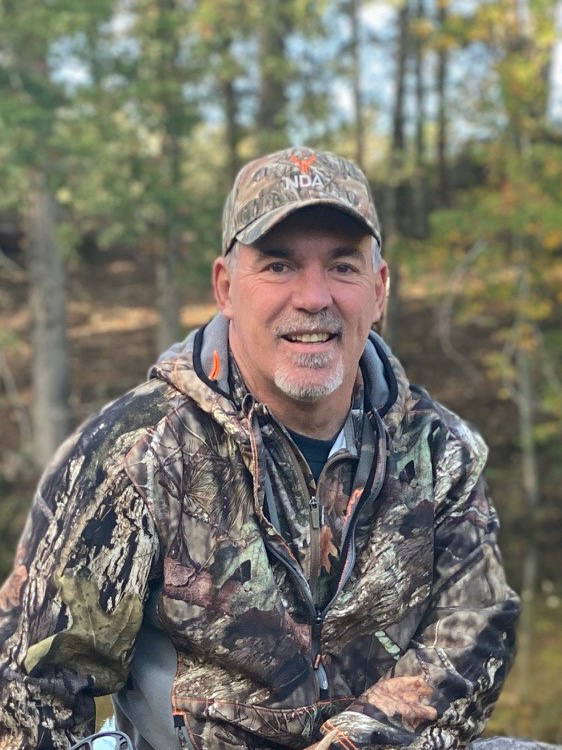By Dan Forster, Archery Trade Association
“A peculiar virtue in wildlife ethics is that the hunter ordinarily has no gallery to applaud or disapprove of his conduct. Whatever his acts, they are dictated by his own conscience rather than by a mob of onlookers. It is difficult to exaggerate the importance of this fact.” Aldo Leopold, in A Sand County Almanac.
While hunters may not have a “mob of onlookers” to witness the act of hunting itself, don’t be fooled into thinking that the non-hunting public isn’t watching. The public is paying attention and taking note, more so now than ever before, given society’s (and hunters!) desire and instantaneous ability to share their stories, photographs, videos, and commentary with thousands of friends or followers with just a few keystrokes or swipes.
In a recent article published in Hunting Wire, I reported on the high degree of relevance and support our hunting and shooting community enjoys nationwide. Our presence and influence are strong across the economic, social, and political landscape. However, public support for hunting is tenuous and can change quickly, so we must not take it for granted!
In Oregon, animal rights activists have once again filed a ballot initiative for the November general election that would effectively ban hunting, fishing, and raising animals for food in that state.
Public approval of legal hunting dropped 4 percentage points over the past two years, from about 81 percent of Americans in 2021 to 77 percent in 2023. Responsive Management, which conducted this survey for the Outdoor Stewards of Conservation Foundation, reported this precipitous decline.
And even though 21 states now guarantee the right to hunt and fish in their constitutions, there are even more states that do not! We must never take the privilege of hunting for granted, regardless of where we live.
The recent slip in public support, increased frequency of legislative attacks, and lack of comprehensive protections are all reminders of the fragility of our hunting privileges. These metrics serve as barometers of how the general public views the hunting fraternity. Absent strong and continuous support from the non-hunting public, our hunting future is at great risk. So, how do we maintain public support for hunting to ensure a brighter future?
Obviously, hunters acting outside the law give the entire community a black eye. As such, strict adherence to applicable laws and regulations should be the bare minimum focus of all hunting activities. But is it legal enough?
While “legal” simply means “as permitted by law,” the term “ethical” conveys a much more complex and visceral description when applied to hunting. “Ethics” can be defined as “the principles of conduct governing an individual or a group.” As such, each individual’s ethical perceptions and standards can vary significantly since each is based on one’s social, moral, familial, economic, religious, and other influential factors.
When viewed through an “ethical” rather than a “legal” lens, acceptable “principles of conduct” or societal standards are often much more rigid than simple adherence to the law! Much of society expects a greater level of principled and moral application from hunters in order to gain their support, especially after the hunt when they may be a “mob of onlookers.” Most onlookers expect stories and images of a successful hunt to be tastefully, respectfully, and honorably portrayed.
The hunting community knows the firestorm that can erupt when controversial hunting content, whether legal or not, catalyzes a sympathetic opposition. So be mindful that many supportive non-hunters would prefer photos and stories about the culinary, social, geographic, and physical elements of one’s hunt instead of an unfiltered “grip and grin” photograph you might share with your hunting partner.
There is no doubt that hunters will continue to be scrutinized and targeted by animal rights and far-left activists. Fortunately for the hunting community, these assailants represent a small minority of the general public. Since hunters, too, are a minority, our hope for a sustainable future of hunting rests solidly on the support of non-hunters, who represent a large majority.
The Responsive Management survey also reaffirms that public support for hunting is highest when practiced for the conservation of healthy wildlife populations, meat, and wildlife management purposes. In contrast, support wanes precipitously when practiced primarily for sport or trophy. Understanding these nuances is important to facilitate improved communications and outcomes with the various audiences we might encounter and engage with, be it on Facebook or the New York Times.
I applaud The Boone and Crockett Club for recently introducing a new Fair Chase and Hunter Ethics online learning module that is FREE and available to anyone. This is a helpful tool for all hunters because the actions of all of us who participate in hunting-related activities, whether good or bad, are being observed and scrutinized by others. This module reinforces our need to act in a manner that will secure the future of hunting for generations to come.
Aldo Leopold stated well when he penned, “Ethical behavior is doing the right thing when no one else is watching when doing the wrong thing is legal.” Therefore, we can help ensure a brighter future for hunters by practicing our pursuits with legal, moral, and ethical convictions. Somebody is watching!

2023-2024 Voice of Leadership Panelists
Jon Zinnel, Federal Ammunition
Dan Forster, Archery Trade Association
Brent Miller, Congressional Sportsmen’s Foundation
Rick Brazell, First Hunt Foundation
Mark Peterson, Worldwide Trophy Adventure
Michelle Scheuermann, Bullet Proof Communications
Facilitators
The Voice of Leadership Panel is an appointed group of outdoor industry leaders who have volunteered to contribute their voices on crucial hunting and outdoor recreation issues to inform, inspire, and educate participants within our community.